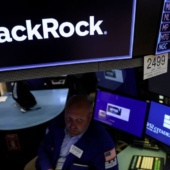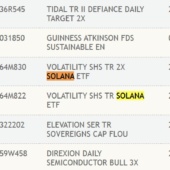Donald Trump‘s election as the 47th president of the United States sent Wall Street into a frenzy, driving major stock indexes to once again break record highs.
Investors are betting that Trump’s potential policies — such as lower corporate and individual taxes, coupled with deregulation in the financial sector — will spur growth for corporate America. They may be underestimating the impact of higher deficits and tariffs on inflation.
Among mega-cap companies, Tesla Inc. (NASDAQ:TSLA) stood out, soaring about 30% this week, which significantly boosted Elon Musk‘s wealth in the wake of Trump’s victory.
Small- and mid-sized stocks outperformed large caps, driven by expectations that trade restrictions could favor domestic businesses over global corporations. The Russell 2000 index, as tracked by the iShares Russell 2000 ETF (NYSE:IWM), recorded its strongest week since April 2020, while regional banks – tracked by the SPDR S&P Regional Banking ETF (NYSE:KRE) – rallied to levels last seen before the March 2023 crisis.
Cryptocurrencies were another major winner post-election, with Bitcoin (CRYPTO: BTC) hitting new all-time highs as traders anticipate a favorable regulatory landscape for digital assets in a second Trump term.
On Thursday, the Federal Reserve cut interest rates by 25 basis points to a target range of 4.5%-4.75%, as anticipated. This move further bolstered investor risk appetite, propelling the combined market valuation of the Magnificent Seven tech giants past the $17 trillion mark, setting a new record.
Federal Reserve Chair Jerome Powell downplayed Trump’s threat of his removal, though economists anticipate the new president may not extend Powell’s term beyond its 2026 expiration. Powell adopted a dovish tone, minimizing concerns over rising Treasury yields, which markets attribute to renewed inflation expectations.
A Trump victory could stall growth in the tech and EV sectors and slow the pace of AI advancements. Analysts warn that policies under Trump might limit innovation, affecting industries that rely on technology and sustainability-focused investments.
Analyzing S&P 500 sector performance during Trump’s first term reveals technology and consumer discretionary sectors outperformed, while energy lagged. In the first three months following Trump’s 2016 election, financials stocks outperformed.
U.S. consumer morale hit a six-month high, surpassing forecasts, and inflation expectations dropped to a four-year low, according to a University of Michigan survey released Friday.














